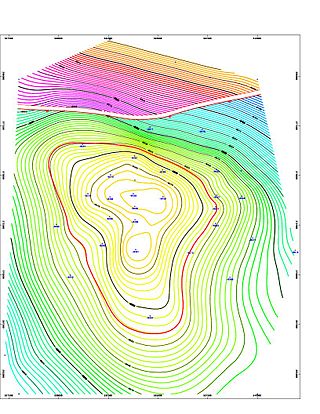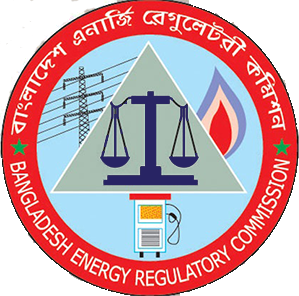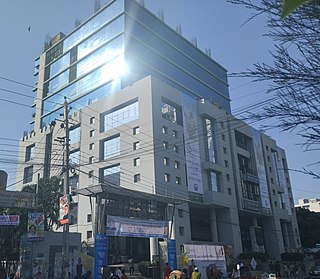Related Research Articles

Petroleum engineering is a field of engineering concerned with the activities related to the production of hydrocarbons, which can be either crude oil or natural gas. Exploration and production are deemed to fall within the upstream sector of the oil and gas industry. Exploration, by earth scientists, and petroleum engineering are the oil and gas industry's two main subsurface disciplines, which focus on maximizing economic recovery of hydrocarbons from subsurface reservoirs. Petroleum geology and geophysics focus on provision of a static description of the hydrocarbon reservoir rock, while petroleum engineering focuses on estimation of the recoverable volume of this resource using a detailed understanding of the physical behavior of oil, water and gas within porous rock at very high pressure.

The Ministry of Petroleum and Natural Gas (MOP&NG) is a ministry of the government of India responsible for the exploration, production, refining, distribution, marketing, import, export, and conservation of petroleum, natural gas, petroleum products, and liquefied natural gas in the country. The ministry is headed by the Cabinet Minister Hardeep Singh Puri. M. M. Kutty is the Secretary of the Ministry. Dharmedndra Pradhan serving as the minister from 26 May 2014 to 7 July 2021 is the longest serving minister till date.

The Gubkin Russian State University of Oil and Gas is a public university in Moscow, Russia. The university was founded in 1930 and is named after the geologist Ivan Gubkin. The university is colloquially known as Kerosinka, meaning 'kerosene stove'.

Rajiv Gandhi Institute of Petroleum Technology (RGIPT), in Jais, Amethi, Uttar Pradesh, India, is a training and education institute focusing on STEM and petroleum industry under IIT Kanpur. It was formally opened in July 2008.

The utility electricity sector in Bangladesh has one national grid with an installed capacity of 25,700 MW as of June 2022. Bangladesh's energy sector is not up to the mark. However, per capita energy consumption in Bangladesh is considered higher than the production. Electricity was introduced to the country on 7 December 1901

The IFP School is a graduate engineering school located in Rueil-Malmaison, France. Founded in 1954, IFP School is part of the IFP Energies nouvelles (IFPEN), a French public-sector research and training center. The school graduates approximately 600 students per year in 20 graduate programs, employing 40 regular professors and 350 instructors from industry.
Bangladesh University of Textiles, commonly referred to as BUTEX, is a public university in Bangladesh, situated in Tejgaon, Dhaka. It is the only public university in Bangladesh to teach textile engineering. The institution established education which sustains the entrepreneurship and industrialisation in the RMG industry of Bangladesh.

The Aeronautical Institute of Bangladesh or AIB is an aviation school in Bangladesh. AIB is the first private aeronautical institute in Bangladesh. The institute is under the Civil Aviation Authority of Bangladesh and governed by the Bangladesh Technical Education Board and Civil Aviation Authority of Bangladesh.
The Bangladesh Institute of Management (BIM) is a premier management Institute of Bangladesh. It was established in 1961. Major activities of the institute are Executive Education, Mid-level Management training, Research and Consultancy. Main purpose of the institute is to provide Educational Services and Training for managerial development.Its headquarters is located at 4 Sobhanbag, Mirpur Road, Dhaka. Others campuses are located in Chattogram and Khulna, Bangladesh.
College of Aviation & Technology (CATECH) is an engineering institute in Bangladesh to provide internationally recognized Higher Academic Qualification in Aeronautical Engineering as well as pilot training. The college is an approved learning center of Edexcel, BTEB and National University of Bangladesh.

The Bangladesh Technical Education Board is a state regulatory board responsible for monitoring and developing technical and vocational education in the secondary level (SSC), 2-year higher secondary level (HSC/Vocational), 4-year Diploma in Agriculture, 4-year Diploma in Engineering degree and 4-year Diploma in Medical Technology degree throughout the People's Republic of Bangladesh. The board sets the curriculum, develops learning materials, grants affiliation to technical and vocational institutions, governs admissions, conducts examination, and awards diploma certifications.

The Bangladesh National Cadet Corps (BNCC) is a tri-services volunteer reserve defence force comprising the Army, Navy and Air Force wing for school, college and university students. It is the second line of defence headed by Bangladesh Army.

The Research Institute of Petroleum Industry, also known as NIOC-RIPI, often shortened to RIPI is a governmental research institute founded in 1959 in Tehran, Iran and is affiliated with National Iranian Oil Company.
Bangladesh suffers with heavy energy crisis with the gradual expansion of economic activities of the country. The estimations and reserves of energy resources show future potentials but a small fraction of them are being utilized which proved to be insufficient. Moreover, the impact of climate change and environment pollution has also been significantly felt. As a result, the successive governments have aimed at formulating an effective energy policy which would address these concerns. The energy policies have also received extensive criticisms especially on the questions of energy export and methods of extraction.
Bangladesh is the sixteenth-largest producer of natural gas in Asia. Gas supplies meet 56% of domestic energy demand. However, the country faces an acute energy crisis in meeting the demands of its vast and growing population. Bangladesh is a net importer of crude oil and petroleum products. The energy sector is dominated by state-owned companies, including Petrobangla and the Bangladesh Petroleum Corporation. Chevron, ConocoPhillips, Equinor, Gazprom and ONGC are major international companies engaged in Bangladesh's hydrocarbon industry, with Chevron's gas fields accounting for 50% of natural gas production.
The Ministry of Power, Energy and Mineral Resources or Ministry of Energy is a ministry of the Government of Bangladesh. It is mainly responsible for all policies and matters relating to electricity generation, transmission, and distribution from conventional and non-conventional energy sources including hydro electricity. It also deals with the Import, Distribution, Exploration, Extraction, Pricing, and other policy related details of the primary fuels.

Bangladesh Energy Regulatory Commission or BERC, is a regulatory agency that regulates the gas, electricity and petroleum products in Bangladesh and is located in Dhaka, Bangladesh.

The Government agencies in Bangladesh are state controlled organizations that act independently to carry out the policies of the Government of Bangladesh. The Government Ministries are relatively small and merely policy-making organizations, allowed to control agencies by policy decisions. Some of the work of the government is carried out through state enterprises or limited companies.
The Bangladesh Hydrocarbon Unit is a government agency in the Ministry of Power, Energy and Mineral Resources responsible for providing the government of Bangladesh technical recommendation on the extraction of hydrocarbon resources and is located in Dhaka, Bangladesh. It carries out research on the gas and petroleum reserves of Bangladesh.

Institution of Diploma Engineers, Bangladesh, widely known as IDEB is a professional organization for Diploma Engineers & Diploma Architects in Bangladesh, which was established on 8 November 1970. The aim of this company is to make an union partnership among diploma engineers to serve in the engineering community.
References
- 1 2 "Bangladesh Petroleum Institute". Banglapedia. Retrieved 26 October 2016.
- ↑ "BD moots Bapex-Gazprom joint venture to Russia". Dhaka Tribune. Archived from the original on 26 October 2016. Retrieved 26 October 2016.
- ↑ Riaz, Ali; Rahman, Mohammad Sajjadur (29 January 2016). Routledge Handbook of Contemporary Bangladesh. Routledge. p. 251. ISBN 9781317308775.
- 1 2 Fund, International Monetary (17 November 2005). Bangladesh: Poverty Reduction Strategy Paper. International Monetary Fund. p. 111. ISBN 9781451876642.